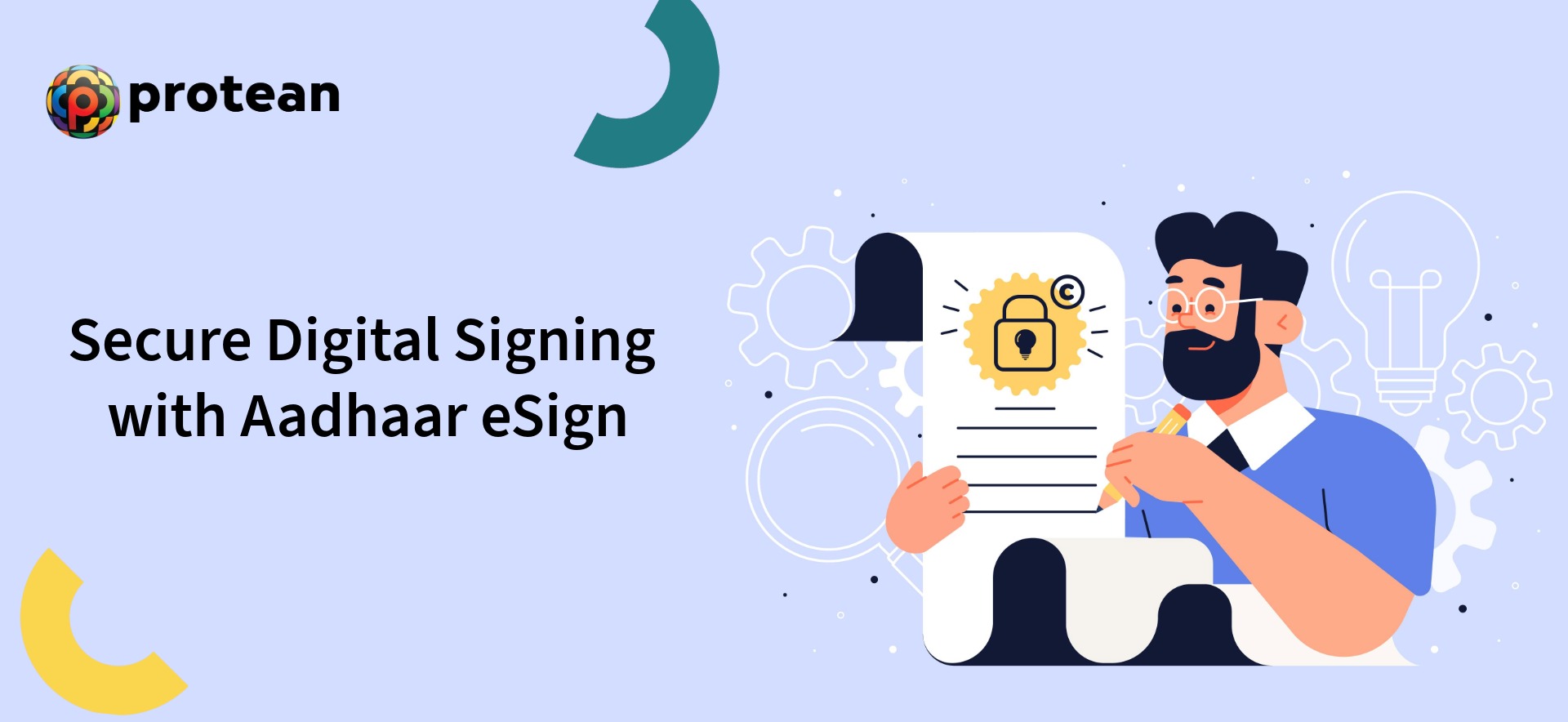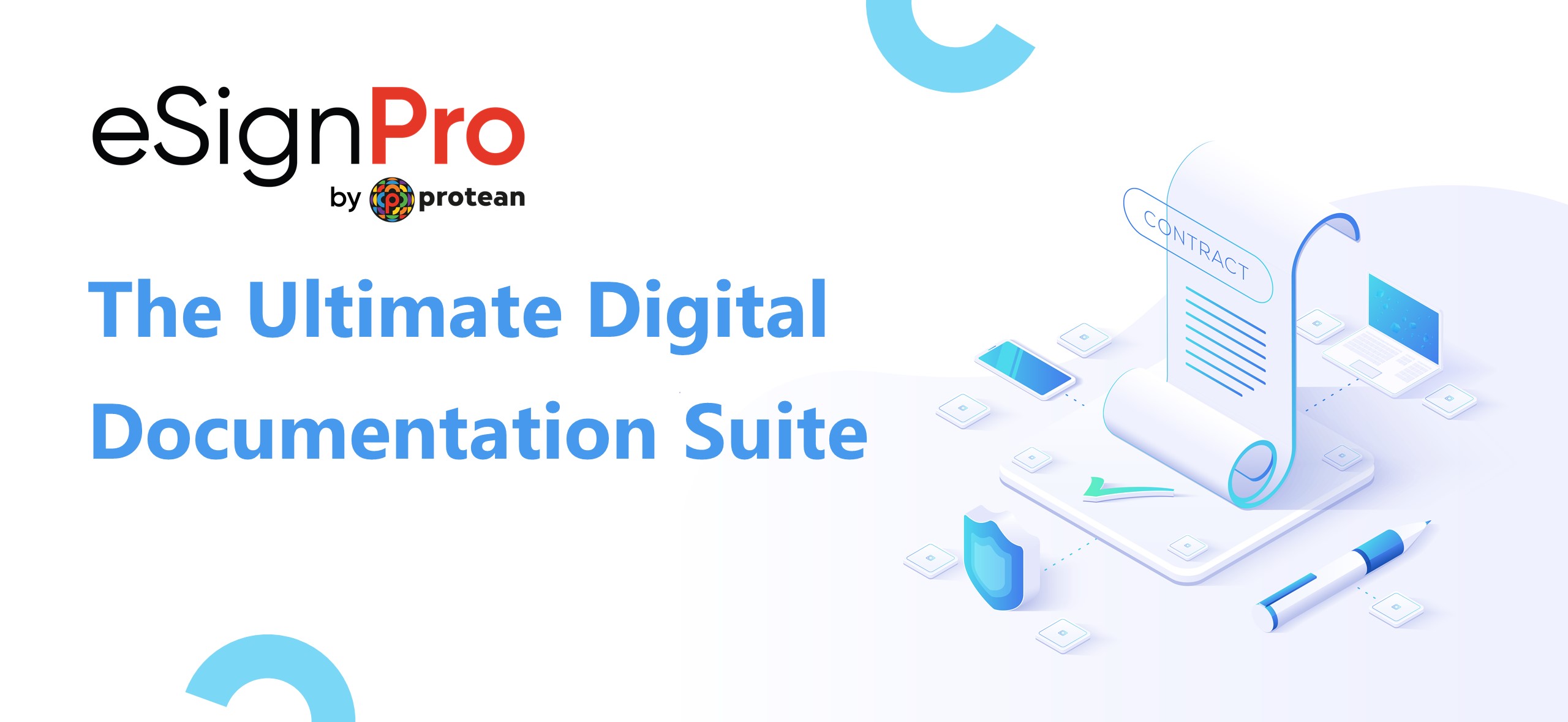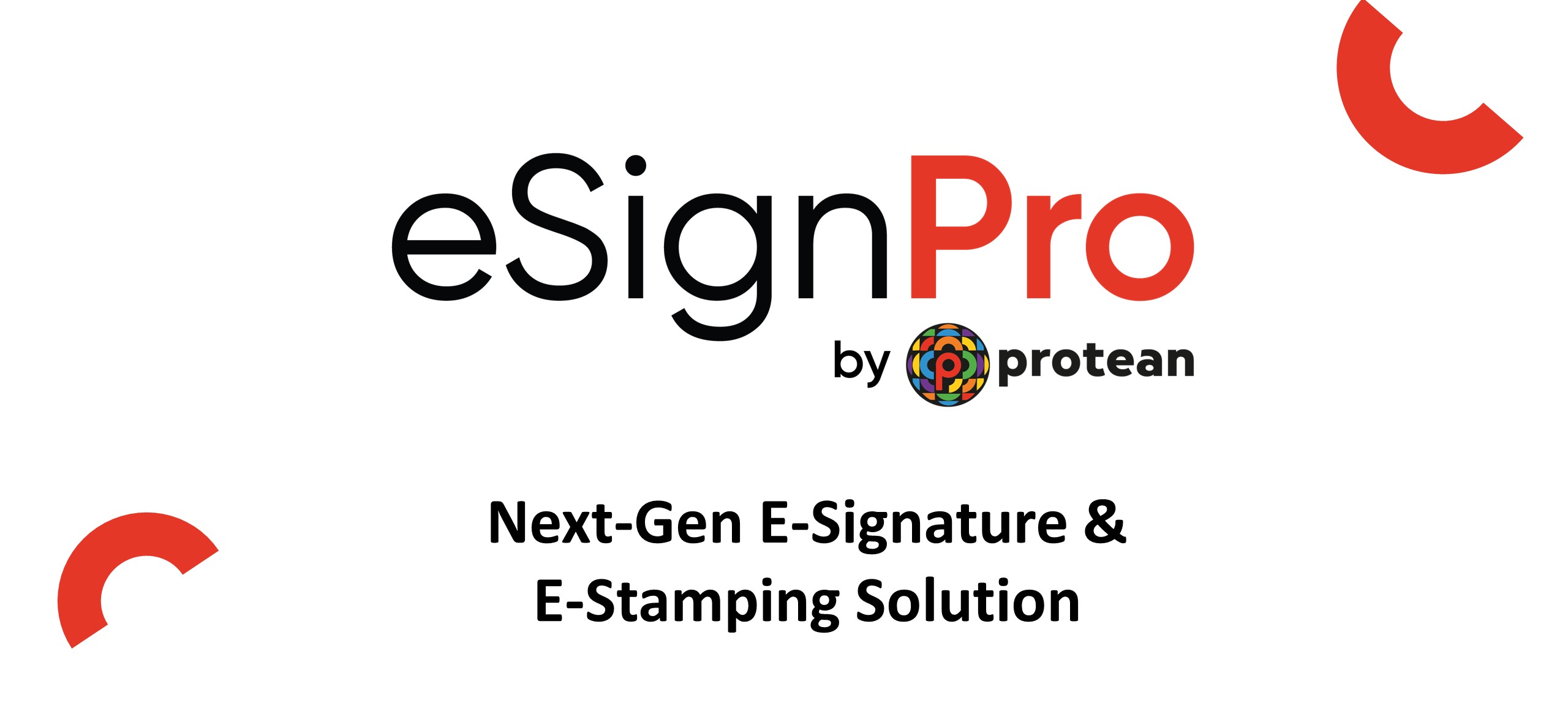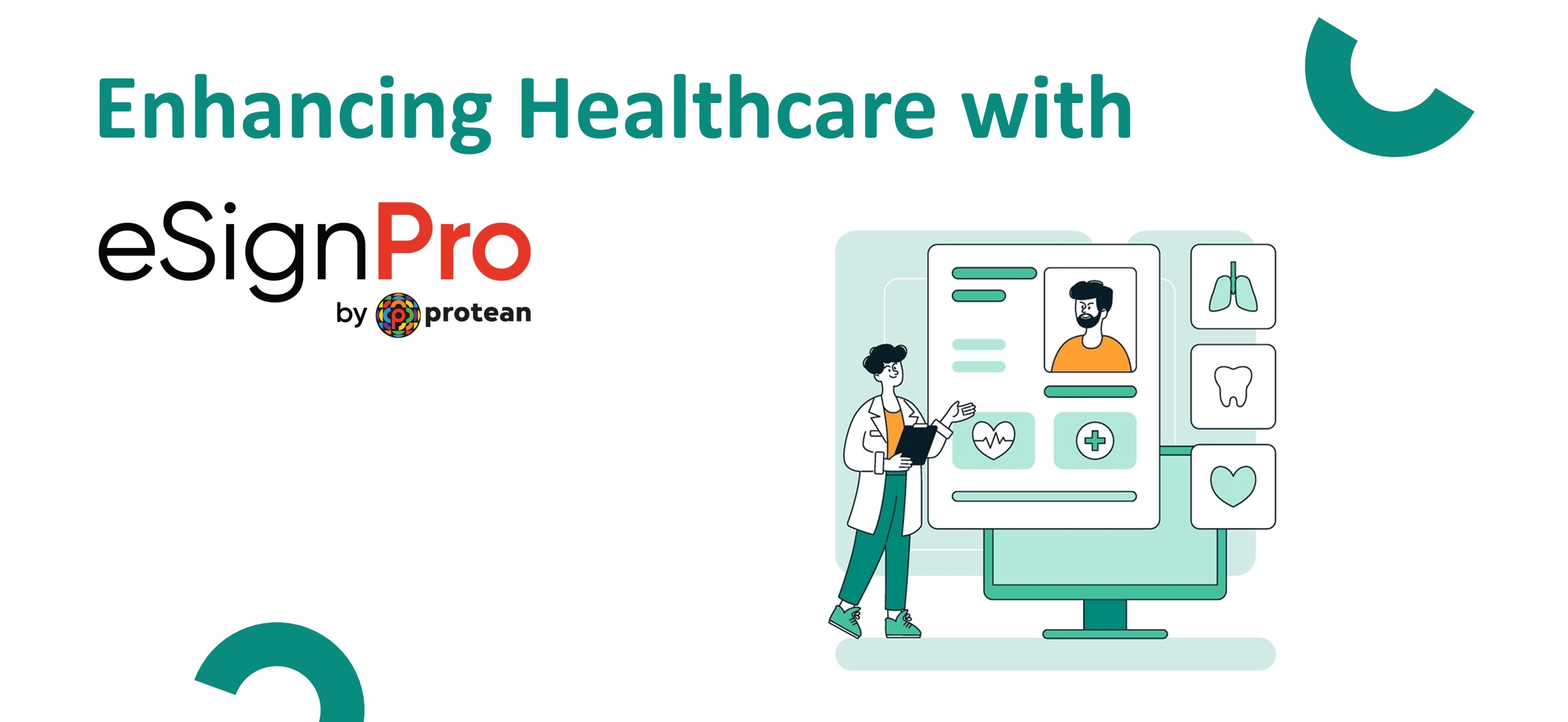Blogs
Benefits of Aadhaar eSign-based Digital Signatures over other alternatives
Digital signatures have become central to modern commerce and compliance. In India, Aadhaar eSign, is an Aadhaar-based electronic signing service. It has accelerated the transition from paper to secure, verifiable online signatures.
Businesses, financial institutions and government agencies increasingly prefer Aadhaar eSign because it combines UIDAI-backed identity assurance with rapid, remote execution of documents. Recent policy updates and enterprise offerings have further strengthened its adoption across sectors.
Let’s learn more about digital signature benefits, digital signature services, and more about Aadhaar eSign services.
Learning about Digital Signatures
A digital signature is a cryptographic mechanism that binds a signer’s identity to a digital document, ensuring integrity, authenticity and non-repudiation.
In India, digital signatures are governed by the Information Technology Act and related rules; Aadhaar eSign was formally inserted into the legal framework to enable Aadhaar-based electronic signatures for consented transactions.
Unlike a scanned image of a handwritten signature, a compliant digital signature creates tamper-evident metadata and a verifiable certificate chain.
Service providers such as Protean eGov Technologies offer API-based eSign platforms that integrate Aadhaar authentication with enterprise document workflows, enabling mass, auditable signing at scale.

What Are The Digital Signature Benefits
Let us look at the main digital signature benefits:
- Speed and operational efficiency. Aadhaar eSign removes the need for physical presence or couriering documents. Signing times that once took days are reduced to minutes, which materially lowers turnaround for account opening, loan processing and vendor onboarding.
- Strong identity assurance. Aadhaar-based authentication leverages UIDAI’s biometric and OTP systems to tie signatures to a verified identity. This reduces identity fraud and improves auditability compared with unauthenticated “click-to-sign” alternatives. mint
- Scalability for mass transactions. Compared with hardware-based Digital Signature Certificates (DSCs), which require tokens and individual key management, Aadhaar eSign scales easily for high-volume use cases because signing is delivered via cloud APIs and UIDAI verification. This makes it more practical for platforms handling millions of micro-contracts or customer consents.
- Regulatory validity and legal standing. Aadhaar eSign has been incorporated into the IT Act’s schedules and is widely accepted for many regulated workflows, provided consent and authentication requirements are met. Organisations relying on Aadhaar eSign can therefore achieve legal defensibility similar to other government-recognised electronic authentication methods.
- Lower total cost of ownership. Eliminating physical tokens, postage, and manual verification reduces operational costs. API-first providers such as Protean eGov Technologies further lower integration effort with SDKs, documentation and managed services.
Use cases of Digital Signatures
Below use cases highlight where Aadhaar eSign and other digital signatures deliver the most value:
- Banking and financial services: account opening, e-mandates (e-NACH), loan agreements, KYC refresh.
- Insurance: policy issuance, claims settlements, beneficiary changes.
- Government and public services: benefits enrolment, application forms, pension disbursal consent.
- Real estate and rentals: lease agreements, power of attorney (reduces risk of fraud).
- Human resources: offer letters, joining documents, HR policy acknowledgements.
- Capital markets and corporate filings: investor agreements, board resolutions, filings where cloud-based signatures are permitted.
- E-commerce and marketplaces: seller onboarding, merchant agreements, dispute settlement forms.
Documents You Can (and Cannot) Sign Digitally
Most commercial and administrative documents can be legally signed using Aadhaar eSign or other compliant digital signatures, provided the law does not require a physical form.
Typical documents include contracts, agreements, consent forms, onboarding forms and many government filings. However, a few documents still require special treatment or cannot be electronically signed: instruments that by statute require physical signatures (specific property registrations in some states), documents where a notary attestation or witnessing is mandatory under a particular statute, and certain negotiable instruments where paper-based endorsement rules persist.
Organisations should verify sectoral regulations and state-level registration practices before relying solely on eSign for high-value property or court-substantive instruments.
Recent regulatory clarifications and UIDAI rule amendments in 2025 have improved clarity for many use cases, but compliance checks remain essential.
Conclusion
Aadhaar eSign-based digital signatures can combine legal validity, strong identity linkage and operational scalability. These attributes can make them particularly well suited for high-volume, customer-facing digital processes.
For enterprises, switching from legacy paper and token-based signing to Aadhaar eSign reduces turnaround time, lowers costs, and strengthens fraud controls while preserving auditability. Technology vendors and DPI-focused firms such as Protean eGov Technologies have accelerated enterprise adoption by offering API-first eSign solutions that integrate with existing document management and onboarding flows.
Frequently Asked Questions
- Is Aadhaar eSign legally valid for contracts in India?
Yes. Aadhaar eSign was incorporated into the legal framework under the IT Act rules and is accepted for a broad set of transactions when properly authenticated and consented. Service providers typically maintain audit trails and certificate records to demonstrate validity.
- How does Aadhaar eSign differ from a DSC (Digital Signature Certificate)?
A DSC stores cryptographic keys in a hardware token and is traditionally used for high-assurance filings. Aadhaar eSign, by contrast, uses UIDAI authentication (OTP/biometric) and cloud-based signing. DSCs remain preferable where hardware-backed keys are mandated, but Aadhaar eSign offers faster deployment and greater scalability for mass transactions.
- Can Aadhaar eSign prevent fraud completely?
No technology prevents fraud entirely, but Aadhaar eSign strengthens identity verification by linking signatures to UIDAI-verified identities. Organisations can combine eSign with additional fraud controls, risk scoring, device fingerprinting and transaction monitoring, for best results.
- Are there privacy concerns with Aadhaar eSign?
Aadhaar-based systems must follow UIDAI’s consent and data minimisation rules. Companies must ensure they do not store Aadhaar numbers inappropriately and that all transactions are consented and auditable. Regulatory updates in 2025 emphasise compliance; businesses should update policies accordingly.
- How should an organisation choose a digital signature provider?
Prioritise providers that offer strong audit logs, easy API integration, enterprise SLAs, clear compliance documentation and a track record in regulated deployments. Vendors who integrate with India’s Digital Public Infrastructure and provide managed onboarding (example, Protean eGov Technologies) can reduce integration risk and speed time-to-value.






